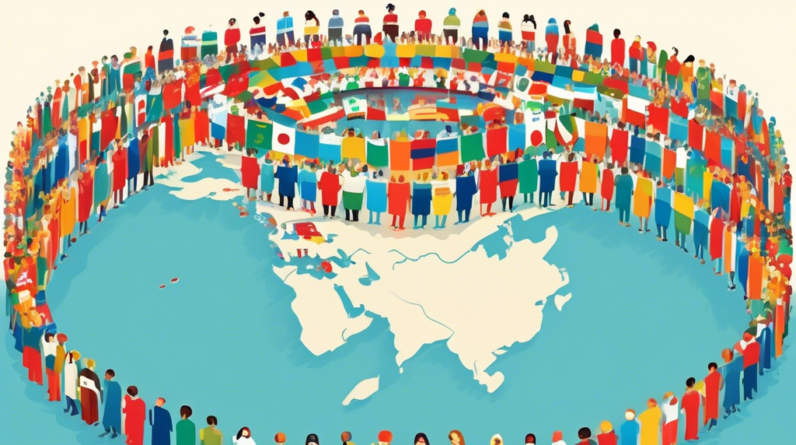
What is a World Republic?
A World Republic, a concept as old as political philosophy itself, envisions a future where the entirety of humanity is united under a single, global government. This idea, often discussed in the realms of political science, international relations, and philosophy, proposes a paradigm shift from our current system of nation-states to a single, unified political entity.
The Theoretical Framework of a World Republic
The theoretical underpinnings of a World Republic are rooted in the belief that many of the world’s most pressing problems – such as war, poverty, inequality, and climate change – are transnational in nature and require global solutions. Proponents argue that the existing system of sovereign nation-states, often driven by self-interest and competition, is ill-equipped to effectively address these challenges.
A World Republic, they posit, would transcend the limitations of national borders and foster global cooperation. It would provide a framework for:
- Unified global governance and law enforcement.
- Harmonized economic policies and resource distribution.
- Collective action on climate change and environmental protection.
- Promotion of global peace and security through disarmament and conflict resolution.
Historical Perspectives on World Governance
The idea of a World Republic is not new. Throughout history, various empires and ideologies have aspired to unify the world under their rule. The Roman Empire, the Mongol Empire, and the British Empire all represent historical examples of attempts at achieving large-scale political unification, albeit through conquest and domination.
Philosophically, the concept of a World Republic has been explored by prominent thinkers like Immanuel Kant in his work Perpetual Peace, where he argues for a federation of free states as a means to achieve lasting peace. Similarly, Dante Alighieri, in his treatise De Monarchia, advocated for a universal monarchy to end political discord and promote human unity.
The United Nations: A Stepping Stone?
The establishment of the United Nations (UN) in 1945 marked a significant step towards international cooperation. The UN Charter, with its emphasis on maintaining international peace and security, promoting human rights, and fostering social and economic progress, reflects the aspirations of a more unified world.
While the UN falls short of a full-fledged World Republic, it serves as a platform for dialogue, diplomacy, and collective action on a global scale. The UN and its specialized agencies work towards addressing global issues, promoting international law, and facilitating cooperation among nations.
Challenges and Criticisms
Despite its idealistic appeal, the concept of a World Republic faces numerous challenges and criticisms. Some of the key concerns include:
1. Practicality and Implementation
The sheer scale and complexity of establishing a World Republic present significant logistical and political obstacles. Achieving consensus among diverse nations with their own histories, cultures, and political systems would be a monumental task.
2. Sovereignty and Self-Determination
A World Republic would necessitate the surrender of some degree of national sovereignty to the global governing body. This raises concerns about the erosion of national identity, autonomy, and the right to self-determination.
3. Cultural and Linguistic Diversity
The world is a tapestry of diverse cultures, languages, and traditions. A World Republic would need to navigate this complexity and ensure the preservation and respect for cultural diversity while fostering a sense of global citizenship.
4. Governance and Representation
Establishing a fair and representative system of global governance would be crucial. Questions regarding the structure of government, the balance of power, and the representation of diverse nations and peoples would require careful consideration and negotiation.
5. Potential for Tyranny
Critics argue that concentrating power in a single, global entity could lead to tyranny and oppression. The absence of a system of checks and balances or the potential for a dominant power to control the World Republic raises concerns about the protection of individual rights and freedoms.
The Future of Global Governance
While the realization of a World Republic in its truest sense remains a distant prospect, the increasing interconnectedness of the world through globalization, technology, and shared challenges necessitates a greater degree of global cooperation.
The future of global governance is likely to involve a complex interplay between national sovereignty and international cooperation. Strengthening existing multilateral institutions, promoting global citizenship education, and fostering dialogue and understanding across cultures are essential steps towards a more peaceful and sustainable future.
Conclusion
The concept of a World Republic, while laden with challenges, continues to spark debate and inspire visions of a more unified and equitable world. Whether or not a true World Republic ever comes to fruition, the underlying principles of global cooperation, shared responsibility, and peaceful coexistence remain essential for addressing the pressing challenges facing humanity in the 21st century.





